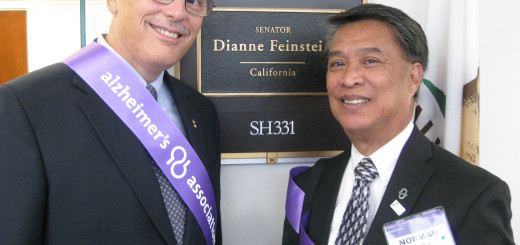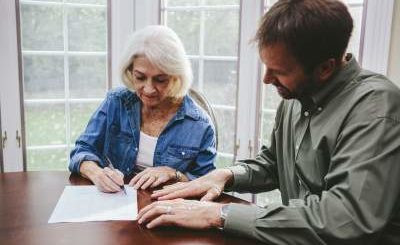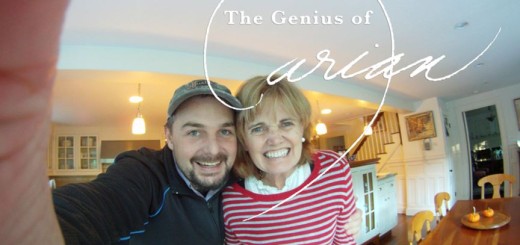The impact of isolation on LGBTQ seniors living with dementia
In November 2020 the Alzheimer’s Association® hosted a Facebook live session featuring Dr. Marcy Adelman, Clinical Psychologist, Alzheimer’s Association board member and cofounder of Openhouse. She interviewed Arthur Chan, LGBTQ Project Manager and Family Care Specialist at the Alzheimer’s Association and Carrie Schell, Manager of Support Services at Openhouse. Together they discussed the impact of COVID-19 on the LGBTQ community and what you can do to support your loved one during this time.
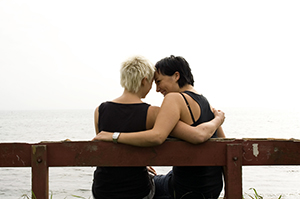
Challenges LGBTQ seniors face
“There are currently over 25,000 LGBTQ seniors living in San Francisco.,” said Dr. Marcy Adleman. “They are three times less like to have children and are 60% more likely to live alone than their heterosexual peers. Many LGBTQ seniors are estranged from their family of origin.”
Even during non-pandemic times LGBTQ seniors are often excluded, left out or unable to get the care they need. Here are just a few of the challenges an LGBTQ senior could be facing:
- Not trusting healthcare providers
LGBTQ seniors might not seek help for fear of being discriminated against and will therefore not receive the care that they need. - Being bullied/left out
For many LGBTQ seniors who live in a care setting, they may be misgendered, targeted with negative labels/verbal abuse, gossiped about or left out of events. - Forced into a caregiving role
Because many LGBTQ seniors do not have a partner or children, they are perceived as having more free time and are therefore nominated to become a caregiver regardless of the fact that they may not be willing or prepared for the role. - Legal issues
Until recently LGBTQ couples weren’t legally allowed to marry and even still, many aren’t married despite living in long-term committed relationships. Because of this many LGBTQ couples do not have the legal authority to make care decisions for their loved one. - Friends as caregivers
Many LGBTQ seniors do not have a partner or children to care for them and have to rely on friends to support them. People who care for their friends are not eligible to take paid family leave.
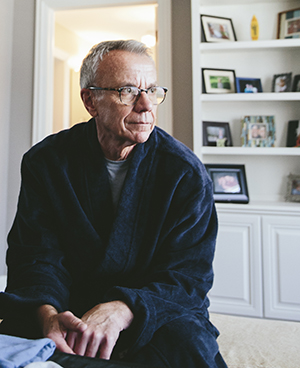
Becoming isolated
Seniors are at an increased risk of contracting and dying from COVID-19. Because of this, many seniors have stopped leaving their home in an effort to stay healthy. As the coronavirus spread, families and caregivers were forced to make difficult decisions. Do they continue to see their loved one and risk exposure?
Here are a few scenarios to consider:
- Caregivers may stop visiting loved ones for fear of exposing them. However, for many people living with dementia, this was their only form of social interaction.
- Latino and Asian American families are more likely to live in multi-generational households. If they go to visit their loved one in a care setting, they could potentially bring the coronavirus into their home and infect the entire family.
- Paid caregivers have to make the tough choice of going to work to make money in order to live or protecting themselves from the coronavirus. If those paid caregivers take care of multiple people, they run the risk of unknowingly spreading it to their other patients.
Keep in mind that many LGBTQ seniors don’t have close family to call or check in on them. As the few people in their lives stopped visiting them in order to protect them, they have found that they are now living in isolation. This can have a profound effect on their mental health. “Social engagement is important for all of us,” said Dr. Adleman. “But especially for those living with dementia.”
Carrie from Openhouse shared, “There is increased isolation. People aren’t going out anymore. It’s hard for them to talk on the phone and they don’t have access to computers. Not everyone has access to the internet. A lot of seniors don’t have a lot of physical touch in their lives already and now that they’re not getting the occasional hug, it has had a really profound effect on their mental health.”
The impact of not connecting with others may be even more problematic for those living with dementia. “Social isolation also tends to lead to a regression in speech and language,” said Arthur from the Alzheimer’s Association. “We’ve seen an increase in the advancement in dementia for clients who previously only had mild dementia.
“Because gyms are closed and there is limited public space to exercise, we’re also seeing a deterioration in physical health.”
Tips to help those living with dementia
Marcy, Arthur and Carrie offered some things you can do to help LGBTQ individuals who are living with Alzheimer’s or other forms of dementia.
- Frequent phone calls. They don’t have to be long.
- Socially distant visits
- Through a door
- Through the window
- From the car
- On the phone while physically looking at each other
- Virtual meetings. Openhouse has tech support for people who have access to the internet and a device.
Tips to help an LGBTQ caregiver
Taking care of someone with dementia is never easy. Here are a few ways you can show your appreciation during this difficult time:
- Give caregivers a break – offer to watch the loved one through a window or door so the caregiver can take a minute to themselves.
- Acknowledge your appreciation for a caregiver.
- If it’s a paid caregiver, and you’re able to, give them a little extra money or extra time off.
- You can give the caregiver a card or write a note expressing your appreciation.
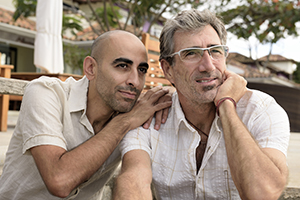
Nonprofit support
“One of the ways we’re addressing isolation is putting more effort into our Friendly Visitor program,” said Carrie. “Normally it’s a program where volunteers visit people in their home or community, but now it’s on the phone.
“Those phone calls mean a lot to people. You’re calling them once a week and they haven’t spoken to anyone since the last time you called them. It really highlights how isolated and lonely people are.”
Another way to find connection is to call the Alzheimer’s Association 24/7 Helpline (800.272.3900). They offer around the clock support, 365 days a year. Through this free service, specialists and master’s-level clinicians offer confidential support and information to people living with the disease, caregivers, families and the public.
Small gestures make an impact
In the end what is important is that you take the time to connect with those living in the LGBTQ community, especially those living with dementia and their caregivers. “They may not remember that you called or visited,” said Carrie. “But that doesn’t mean it didn’t make a positive impact on their mental health.”
Arthur reminds you that “Kindness is free. You don’t have to spend your time organizing a drive by party. Just make a phone call, send a text or a card. Let the person know they’re supported.”
Watch the whole Facebook live session below:
For more information on LGBTQ resources visit our website or call 800.272.3900.
For more information on Openhouse visit openhousesf.org.
Learn more:





